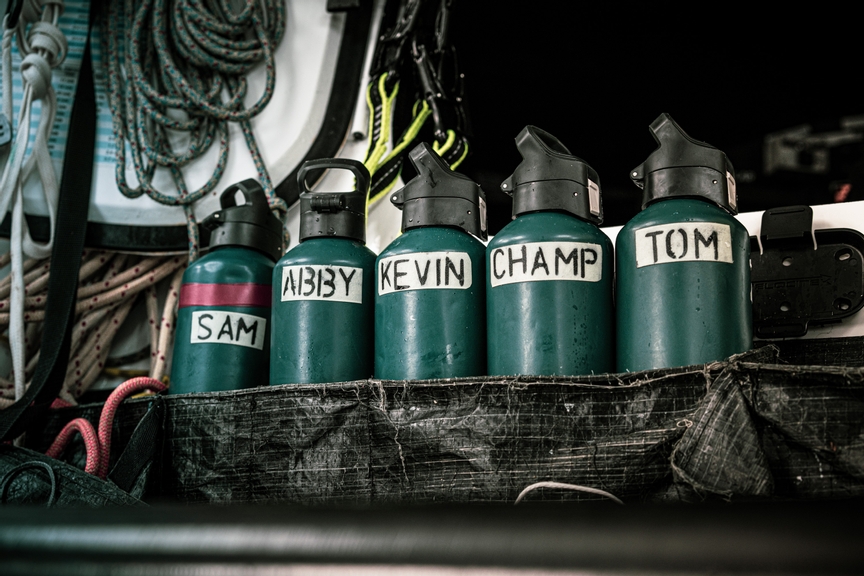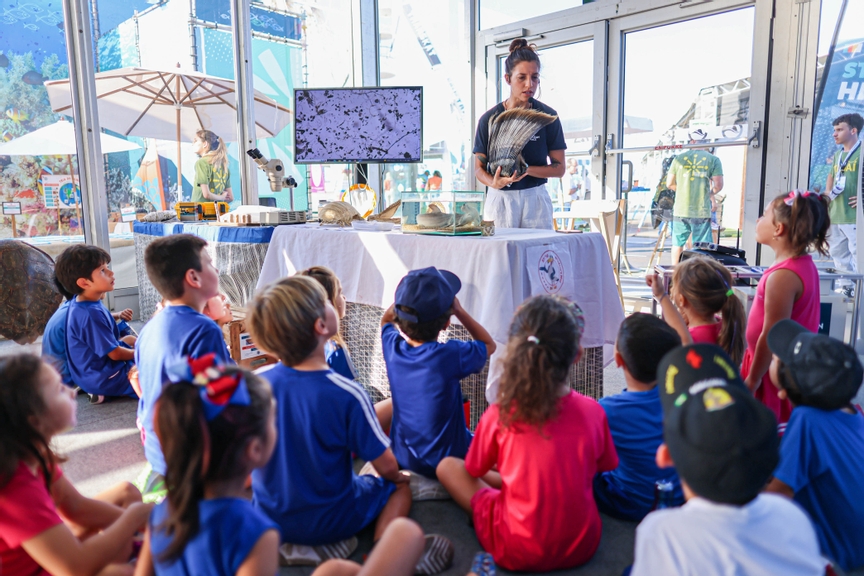We can’t all compete in The Ocean Race, but we can all take part in the race for the ocean. From making small switches when you shop to calling on the Government to put in place stronger policies, everyone has a role to play in helping to protect our incredible blue planet.
Healthy seas are vital to all life on Earth, so if the ocean wins, we all win. Read on to find out how you can be part of team ocean.
Help to give the ocean a voice
The people in power need to take greater steps to conserve and restore the marine environment, after all our futures are intrinsically linked to the ocean. Let leaders know that you want them to act by adding your voice to the growing movement calling for 30% of the ocean to be protected by 2030. Help us to gather valuable insights into how people across the world view the most urgent issues facing our blue planet by filling in The Ocean’s Logbook. We will present the results at key ocean health conferences, attended by decision-makers from across the world, and help to build a case for safeguarding 30% of the seas.
Choose sustainable seafood

Overfishing is having disastrous consequences on marine life. This doesn’t mean you have to forgo fish and seafood, but instead make sure that your choices are sustainable. Look out for sustainable certification labels in restaurants and supermarkets, such as the MSC blue fish label. Also try different varieties to the usual suspects, as less popular species are less likely to be overfished.
Create your own Ocean Action
If you want to support the ocean, but don’t know where to start, look no further. We have a simple tool to help you identify the unique action you can take to help the seas. By combining your skills and knowledge, passion for the ocean and the solutions that are needed to restore the marine environment, you will discover the best way that you can make a difference. Find out more here.
Say goodbye to single-use plastic

If we don’t act now the ocean could contain more plastic than fish by 2050. Recycling is fraught with challenges, while it is preferable to just throwing items away, better yet is to switch to reusables wherever possible. Rethink unnecessary single-use plastic and opt for long-lasting alternatives like carry cups and tote bags.
If you want to go a step further, ask the shops, eateries and other businesses you use to adopt sustainable alternatives to single-use plastic and get involved in beach cleans or litter-picks in your local area.
Inspire the next generation to safeguard the seas

You can help children and young people to understand why a healthy ocean is critical for all life on earth. The Ocean Race’s Learning programmes are suitable for schools, at home learning, community and youth groups, along with sailing clubs.
Champions for the Sea (ideal for 6-12 year olds) and Generation Ocean (for 12+) both use the exciting backdrop of our adrenaline-fuelled Race to give a unique perspective on the marine world.
There’s a handy guide to help you use the resources and a quick quiz to discover how much you know about the ocean before you get started.
Cut the carbon
The climate crisis, fuelled by soaring greenhouse gas emissions, is wreaking havoc on our ocean. Keeping our individual emissions as low as possible is essential. Switch to a renewable energy provider and consider travelling by public transport, bicycle or on foot rather than car. Discover more tips here.
You could also explore carbon offset schemes, which enable you to invest in environmental projects around the world in order to balance out your unavoidable carbon footprint. Supporting ‘blue carbon’ projects like mangrove and seagrass planting not only capture greenhouse gasses, but help to restore ocean health and provide habitats for marine life.
Be a champion for the sea in your workplace
Wherever you work, there are ways that your team can take ocean-friendly action, from switching to sustainable seafood in your canteen to opting for long-lasting alternatives to single-use plastic. Take a look at your business’ supply chain and see what specific steps can be taken to reduce its footprint. For example, if you are a car manufacturer can you transition to electric engines, like Volvo Cars, or as a clothing brand, could your company use ocean plastics and more sustainable materials like Helly Hansen?
We have created a series of guides to help businesses on their sustainability journey, including managing and tracking greenhouse gas emissions, sustainable sourcing and a plastic-free event guide. FInd out more and sign-up to our Knowledge Centre to download the materials here.